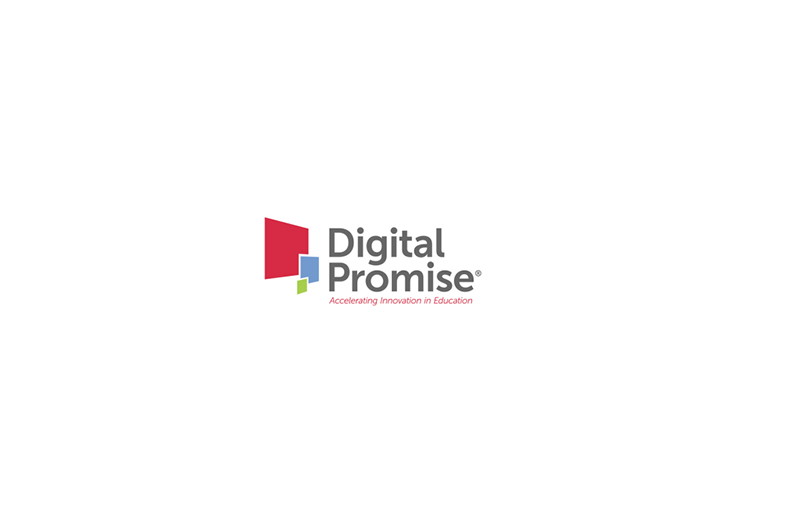
Digital Promise Releases New Report to Understand Micro-credential and LER Use in K-12 Settings
A new report offers recommendations for implementing recognition technologies to advance skills-based learning for historically excluded students

A new report offers recommendations for implementing recognition technologies to advance skills-based learning for historically excluded students
AUGUST 21, 2024 | Washington, D.C. – Global education nonprofit, Digital Promise, has released a new report, “The Promise of Micro-credentials and Learning and Employment Record Technologies for Youth and K-12 Schools,” which helps district leaders and technology sector leaders understand the conditions necessary to successfully implement competency-based, learner-centered micro-credentials and learning and employment record (LER) technologies in K-12 schools.
Learning and employment record technologies are tools that allow individuals to document and share their skills, credentials, diplomas, and employment history, with the potential to strengthen or reinvent resumes by including verifiable information about achievements in real-time. Micro-credentials are digital certifications that verify an individual’s competence in a specific skill or set of skills. These technologies have the potential to foster lifelong learning and career advancement, particularly for systematically excluded (HSE) learners.
As the United States shifts to skills-based hiring and advancement, recognition technologies such as micro-credentials and LERs can certify student learning and success and comprise lifelong learning data. Digital Promise’s research provides recommendations and considerations based on insights from students, families/caregivers, educators, postsecondary partners, and workforce partners in co-design sessions and focus groups from Talladega City Schools (Alabama) and JMG.
“The skills-based economy is rapidly and continuously shifting to accommodate the rapid pace of innovation,” said Rita Fennelly-Atkinson, senior director of credentials at Digital Promise. “Organizations that serve youth are positioned to increase opportunities for learners by adopting competency-based credentialing and recognition, which will allow learners greater access to pathways that will lead to success.”
The Readiness Framework provides K-12 district leaders with an opportunity to evaluate their district’s readiness to implement LER technologies and competency-based micro-credentials while prioritizing the voices of HSE learners. Designed in partnership with leaders in K-12 education and competency-based micro-credential and LER implementation leaders, the framework indicates what is needed to successfully introduce, manage, and sustain digital credentialing and LERs for their learners.
“We aim to expand opportunities for youth to develop and gain recognition for what they know and can do,” said Christina Luke Luna, chief learning officer at Digital Promise. “The guidance in this report equips education leaders, technology providers, and funders with insights to design for greater equity and inclusion with learners at the table.”
Alongside the report, Digital Promise has released a video, “Boost K-12 Success with Micro-Credentials & LER Tech for Skill Recognition,” which depicts the various ways a K-12 learner can leverage micro-credentials and LER technologies to support entry and advancement into the postsecondary pathway of their choosing.
To learn more about this work and read the full report, visit Digital Promise’s website.
Press Contact:
Crystal Williams
Digital Promise
cwilliams@digitalpromise.org
240.494.6382
About Digital Promise
Digital Promise is a global nonprofit working to expand opportunity for every learner. We work with educators, researchers, technology leaders, and communities to design, investigate, and scale innovations that support learners, especially those who’ve been historically and systematically excluded. Our vision is that every person engages in powerful learning experiences that lead to a life of well-being, fulfillment, and economic mobility. For more information, visit the Digital Promise website and follow @digitalpromise for updates.
This is a sponsored message and does not necessarily represent the views of the Education Writers Association, its board of directors, or its members. Want to see your release on the EWA site? Promote it with EWA.
Your post will be on the website shortly.
We will get back to you shortly